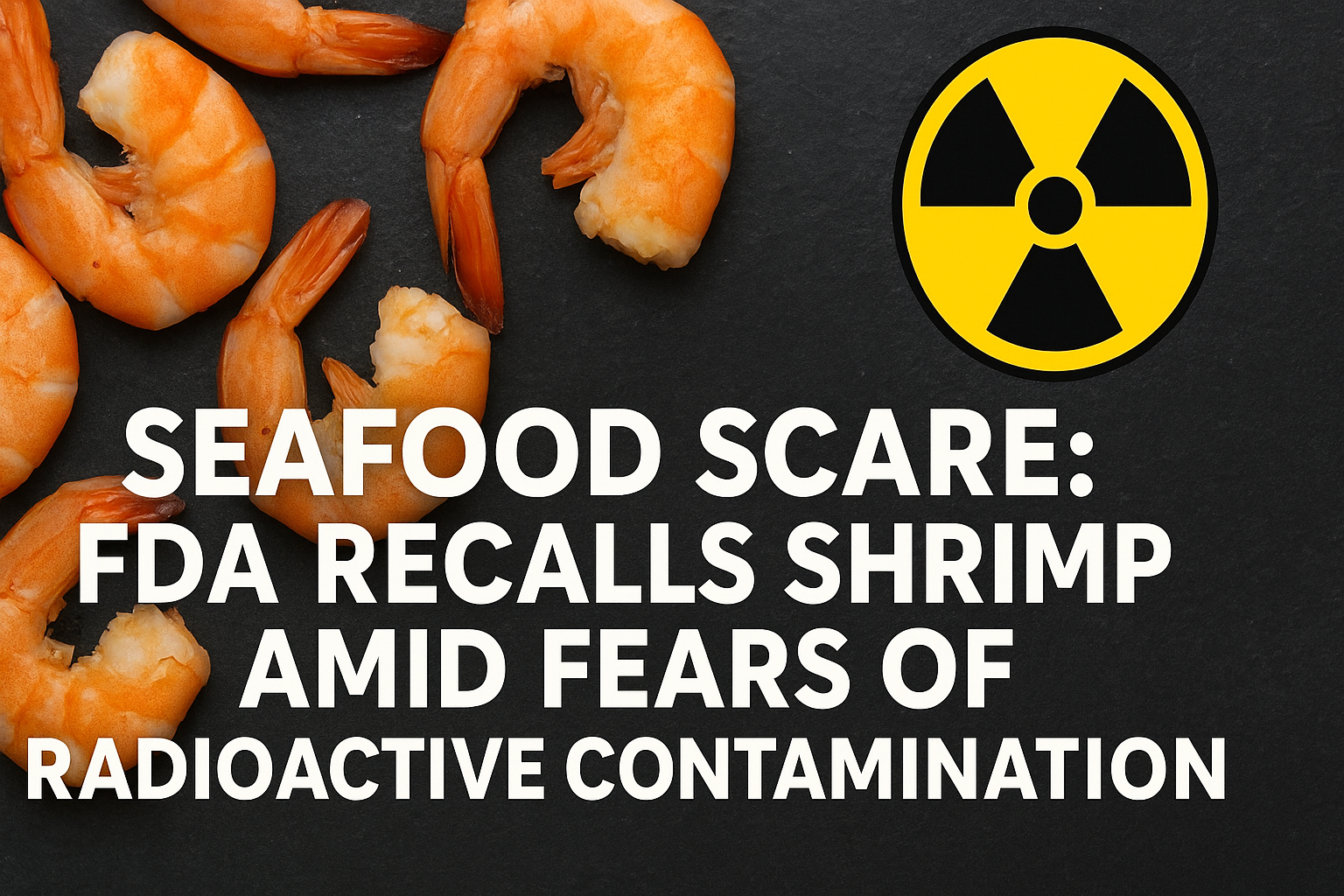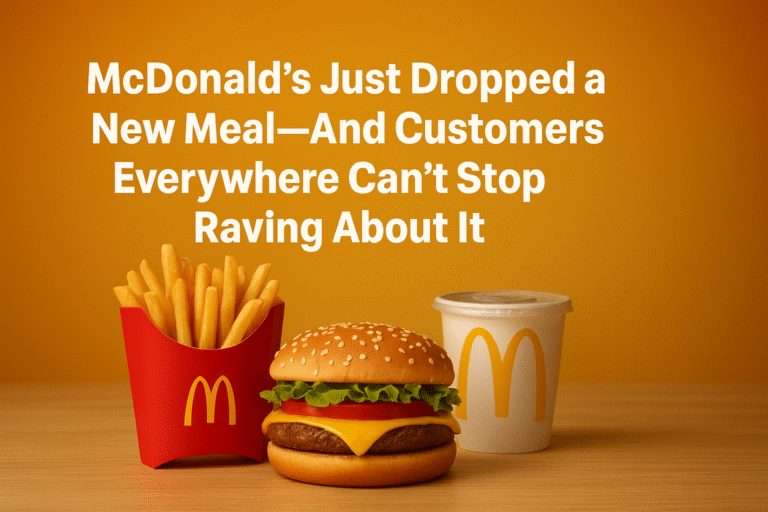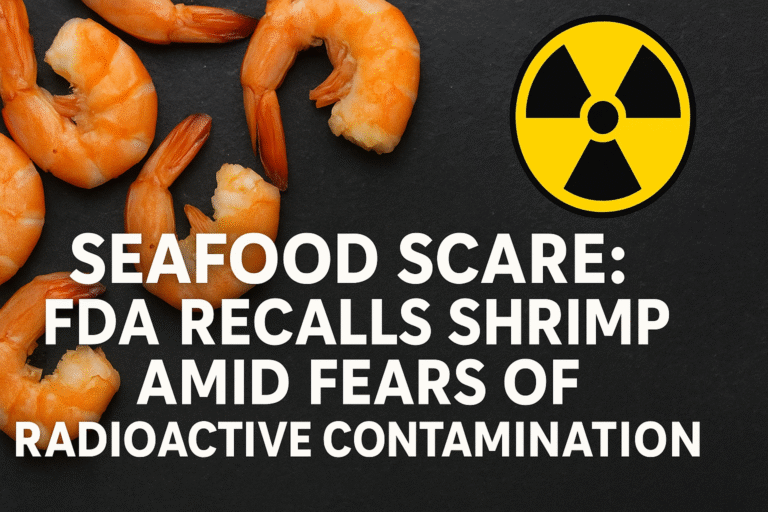
Seafood lovers across the United States are on high alert after the Food and Drug Administration (FDA) announced a nationwide recall of shrimp products. The shocking move comes amid rising concerns that certain imported shrimp batches may be contaminated with radioactive particles, sparking widespread fear among consumers and industry experts alike.
This unsettling development has not only left families questioning what’s safe to eat but has also sent shockwaves through the multi-billion-dollar seafood industry. Let’s break down the situation, why it happened, and what it means for your dinner plate.
The Breaking News
Earlier this week, the FDA issued an urgent recall of multiple shrimp products after routine inspections detected traces of radioactive material. The contaminated shrimp was reportedly sourced from overseas suppliers, primarily from regions near nuclear activity zones.
While investigations are still ongoing, the FDA emphasized that consumers should immediately stop consuming shrimp from the affected batches and either return them to the point of purchase or safely discard them.
This incident has ignited debates about seafood safety, import regulations, and global food supply chains, with many questioning how radioactive contamination slipped through initial inspections.
How Did Shrimp Get Radioactive?
At first glance, the idea of radioactive shrimp may sound like a plot from a science fiction movie. However, experts suggest there are plausible reasons:
- Marine Pollution Near Nuclear Zones – Shrimp farms or fisheries located near waters impacted by nuclear waste or leaks may inadvertently absorb radioactive elements.
- Industrial Waste Dumping – In some countries, industries discharge contaminated water into oceans or rivers, exposing marine life to harmful substances.
- Bioaccumulation – Shrimp, being bottom feeders, often consume particles and plankton from sediments, which can carry radiation if the environment is polluted.
While the detected contamination levels have not yet been fully disclosed, even low-level exposure raises health concerns when seafood is consumed regularly.
The Potential Health Risks
Radiation exposure through food, while rare, can have serious long-term consequences. Medical experts warn that consuming contaminated shrimp could lead to:
- Cellular Damage – Radiation can damage DNA, potentially leading to genetic mutations.
- Increased Cancer Risk – Prolonged exposure raises the risk of cancers such as leukemia, thyroid cancer, and stomach cancer.
- Weakened Immune System – The body’s natural defenses may be compromised over time.
- Reproductive Health Issues – Studies show radiation can affect fertility and prenatal development.
Although the FDA insists the recall is precautionary, public concern is justified. The fear isn’t just about shrimp—it’s about the integrity of the entire seafood industry.
Economic Fallout for the Seafood Industry
The U.S. seafood industry generates billions of dollars annually, and shrimp is one of the most consumed seafood items. With this recall:
- Restaurants are scrambling to adjust menus.
- Grocery stores face supply shortages as shelves are cleared.
- Importers and distributors risk financial losses due to destroyed stock.
- Consumer confidence has plummeted, leading many to avoid shrimp altogether, even from safe sources.
Industry experts fear that if confidence isn’t restored quickly, the ripple effects could damage the global seafood trade for years.
Global Implications: Who’s Responsible?
This isn’t just a local issue—it’s a global food safety challenge. Questions are being raised about:
- Foreign seafood regulations – Are exporting countries following strict safety standards?
- U.S. border inspections – How did contaminated shrimp make it past initial checks?
- International accountability – Should there be global cooperation to monitor radioactive contamination in oceans?
The FDA has pledged to work with international partners to identify the exact source of contamination and tighten import protocols.
What Consumers Should Do
If you’ve recently purchased shrimp, here’s what you need to know:
- Check Recall Lists – The FDA has released a list of affected brands and batches. Cross-check your purchases immediately.
- Return or Dispose – If your shrimp is on the list, return it to the store or safely discard it. Do not consume it.
- Buy Locally Sourced Shrimp – Opt for shrimp caught in U.S. waters where safety inspections are stricter.
- Stay Updated – Follow FDA announcements and reliable news outlets for updates on the recall.
What This Means for Food Safety
This recall raises bigger questions about food security in an interconnected world. As seafood is one of the most globally traded commodities, a safety breach in one country can have a domino effect worldwide.
Experts suggest this incident could lead to:
- Stricter import checks.
- New international food safety treaties.
- Higher consumer demand for “traceable seafood”, where buyers can verify the exact origin of their food.
Ultimately, this may shift the way we view not just seafood but all imported goods.
Looking Ahead
The seafood scare caused by this recall is more than a temporary disruption—it’s a wake-up call. While the FDA is working to ensure contaminated shrimp is removed from circulation, the event exposes weaknesses in the food supply chain.
For now, consumers must remain cautious, and the seafood industry must rebuild trust. But one thing is clear: food safety is no longer just about freshness—it’s about global accountability.
FAQs
1. Which shrimp brands have been recalled?
The FDA has released a detailed list of affected brands and batch numbers. Consumers should check the FDA website for the latest updates.
2. Is it safe to eat shrimp not listed in the recall?
Yes. Shrimp from unaffected batches and locally sourced U.S. shrimp are considered safe to eat. Always confirm with updated FDA guidance.
3. How can shrimp become radioactive?
Shrimp can absorb radioactive particles if they are farmed or caught in waters contaminated by nuclear waste or industrial dumping.
4. What health risks are associated with radioactive shrimp?
Potential risks include cancer, immune system damage, and reproductive health issues, particularly if consumed regularly.
5. Can cooking eliminate radioactive contamination?
No. Unlike bacteria, radiation cannot be destroyed by heat. If shrimp is contaminated, it remains unsafe regardless of cooking methods.
6. What should I do if I already ate recalled shrimp?
The FDA advises contacting your healthcare provider for guidance, especially if you consumed large amounts over time.
7. Will shrimp disappear from grocery stores?
No. Only specific contaminated batches are being recalled. However, there may be temporary shortages as suppliers adjust.
8. How can I ensure seafood safety in the future?
Buy from reputable sources, look for labels indicating origin, and stay informed about recalls and FDA alerts.






